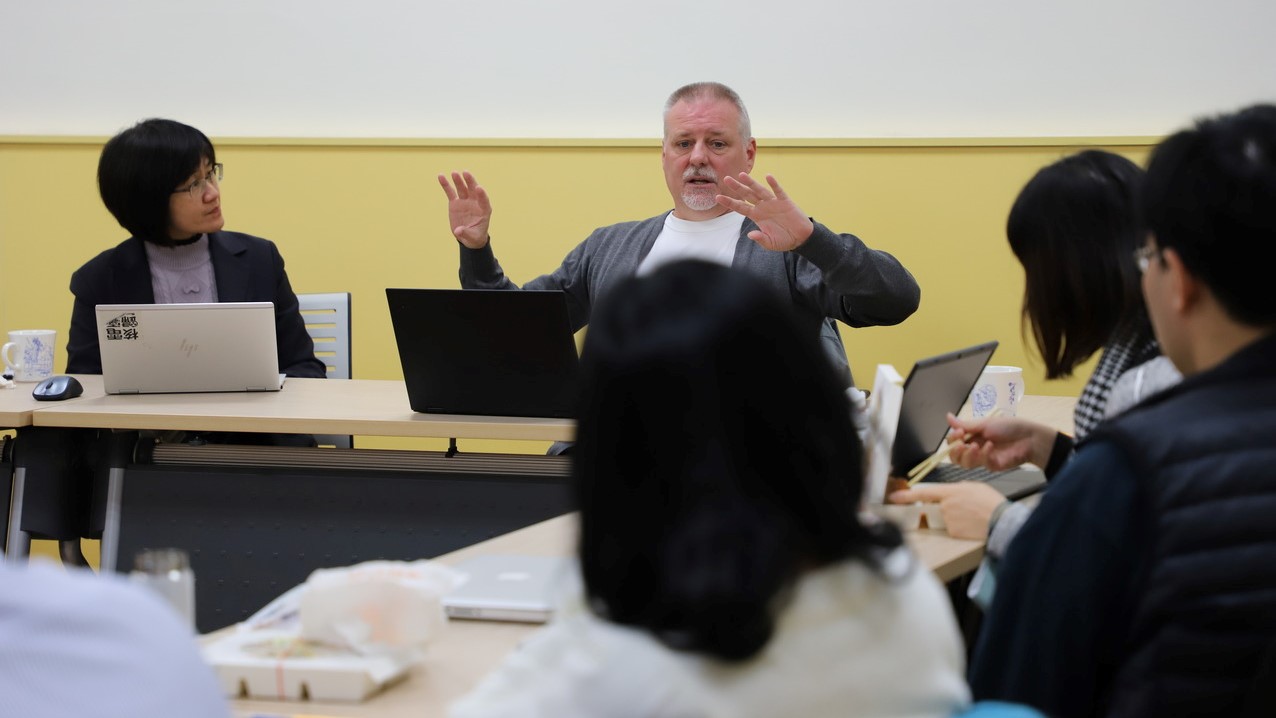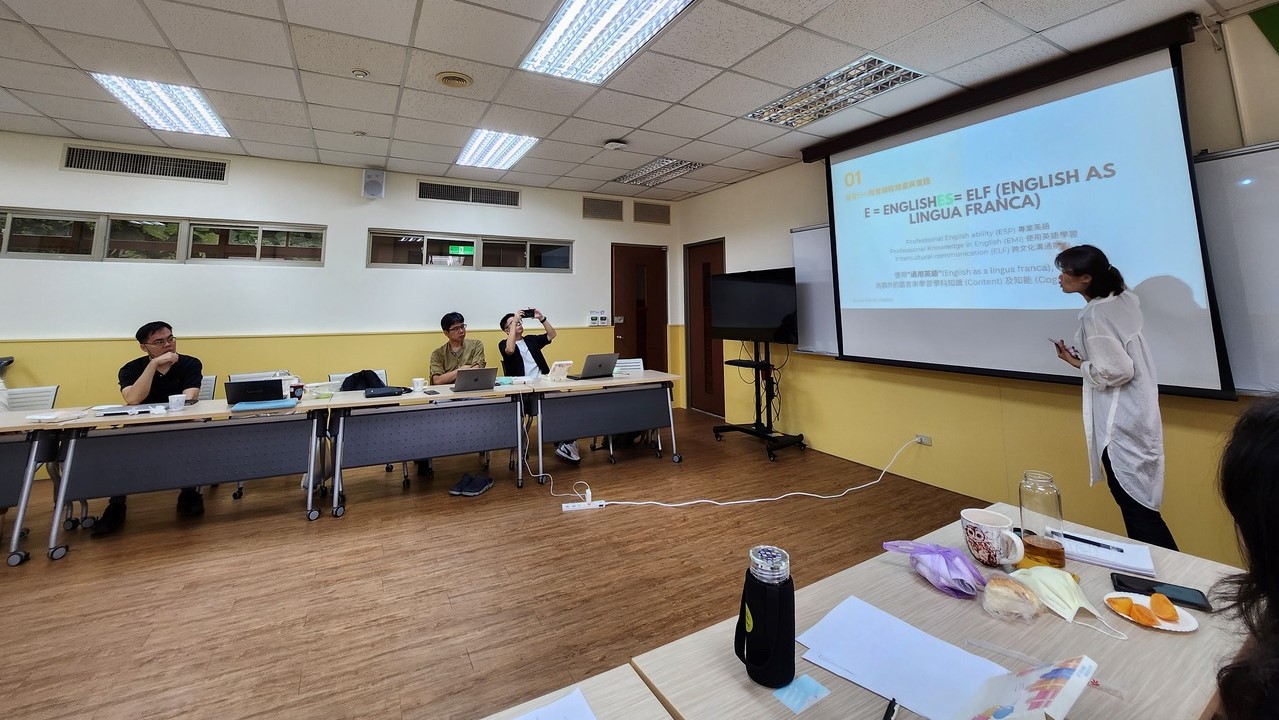Abstract
International College of Innovation, National Chengchi University
The Program on Bilingual Education for Students in College, BEST Features and Highlights
Since its establishment, the college has been primarily staffed by faculty with EMI teaching experience. It is also the first college in Taiwan to make global research and forward-looking strategies the core of its teaching and research. All students (local and foreign) learn together from daily life to classroom activities, training them to write reports, make class presentations, and participate in group discussions in advanced English language skills (CEFR C1 or higher). On one hand, this helps international students expand their social and friendship circles and better integrate into the campus environment, on the other hand, it also provides local students without exchange opportunities with the chance to experience international learning and gain intercultural communication experiences.
In terms of course design, over 90% of courses at the college are currently taught in English. The core concepts of the courses are "interdisciplinary learning," "information literacy," and "sustainable development and civic rights." In order to cultivate young people's professional competence in the country's key areas such as Asia regional studies, international economic negotiations, international communication, and data science, the college integrates interdisciplinary faculty from the social sciences, legal research, space, communication, information, and data science to create a bilingual training and interdisciplinary curriculum for students.
The International College of Innovation bilingual program features and highlights are summarized as follows:
- From daily life to the classroom, from ‘B2’ to ‘C1’:
The college selects students with English proficiency of CEFR B2 level and above, and require teachers to be equipped EMI teaching experience. Over 90% of the courses are taught fully in English. All students (local and international) learn together, training advanced language skills (CEFR C1 and above) such as writing reports, giving classroom presentations, and group discussions in English, to cultivate bilingual leaders in Taiwan. As the college offers all required courses in the form of EMI, it has achieved and exceeded the E1 (16 credits) and E2 (32 credits) goals for first and second-year students.
2. Focus on key areas, establish interdisciplinary EMI programs:
The school integrates the energy of various international programs within the school to offer over 200 professional English courses, serving as the core of the university's EMI virtual campus. In addition to single-discipline courses, the school collaborates with various departments to offer bilingual courses with an international perspective. Students are encouraged to discuss and exchange ideas on global issues such as climate change, health governance, and media communication, training students' multilingual and multi-disciplinary abilities.
In response to the development of EMI courses centered on the Sustainable Development Goals (SDGs), the school has established two EMI courses centered on the SDGs. The school held four training workshops in 2022 to develop the capabilities of EMI teachers.
To promote interdisciplinary participation, the school is committed to promoting creative and innovative teaching through cross-departmental collaboration and offering a wide range of interdisciplinary courses. The school will also continue to establish networks with other universities in Taiwan. For example, the "Global Public Health Governance" course is jointly organized by the school and the Centre for Global Health at Oregon State University in the form of a cross-national TEMIP simulation, where students participate in a self-motivated learning process and apply what they have learned in class to solve various public health governance issues through simulation and role-playing.
3. Networking to share EMI courses, creating a bilingual and interdisciplinary teaching hub:
In addition to collaborating with various colleges within the school, interdisciplinary courses also collaborate across schools (such as the University System of Taiwan), across countries, and encourage students from outside the school to participate through online video or in person, to experience bilingual interdisciplinary courses together, and achieve the sharing of regional bilingual teaching resources. During the 2021/2022 academic year, the college offered a total of 50 on-site EMI courses and 34 online EMI courses, exceeding the established goals. Additionally, due to the outbreak of COVID-19 in early May, all EMI courses were converted to online format, resulting in significantly better results for online EMI courses than set targets.
4. Deepening international cooperation and exchange, enhancing mobility capabilities of teachers and students:
In addition to encouraging students to participate in international courses or programs through cross-national and cross-school cooperation, to enhance knowledge learning exchanges and interactions, our college also requires students to participate in overseas exchanges and international internships, fostering students' international mobility. It is hoped that through local participation, students can increase their cultural awareness and broaden their international perspectives. To deepen international cooperation and exchange, the college signed college-level exchange agreements with three foreign universities in 2022 (O.P. Jindal Global University, India, San Jose State University, USA, Virginia Wesleyan University (Batten Honors College), USA).
(1) International faculty and visiting experts, strengthening the quality of teaching:
During the period of 2021 to 2022, in order to expand teaching capacity, the institute hired four foreign part-time teachers (William Anthony Stanton, Deasy Simandjuntak, Chrissy Cook, Kevin Chang). The institute also actively coordinated international well-known scholars to visit the institute and collaborate with the institute's teachers for co-teaching (Syaru Shirley Lin, Harry Harding, Chunhuei Chi, Jeffrey Hou, Josha Smith, Rick Carew, Neath Ronald Charles, Tim Schutz, Ichin Cheng, Lev Nachman). In addition to offering specialty courses, there are also opportunities to provide EMI teaching experience sharing and provide training workshops for the institute's teachers. At the same time, visiting scholars also serve as short-term resident advisors for new teachers, providing advice and feedback. The institute closely collaborates with several well-known international scholars in course development, teaching consultation, and practical course (Capstone Project).
The institute also actively holds EMI teaching experience sharing seminars to improve EMI courses. We invite teachers who have excellent English teaching quality to share their EMI teaching experience. To this end, the college has held more than five relevant seminars to improve the academic exchange ability of teachers, and also held the first consensus camp in the second half of 2021.

